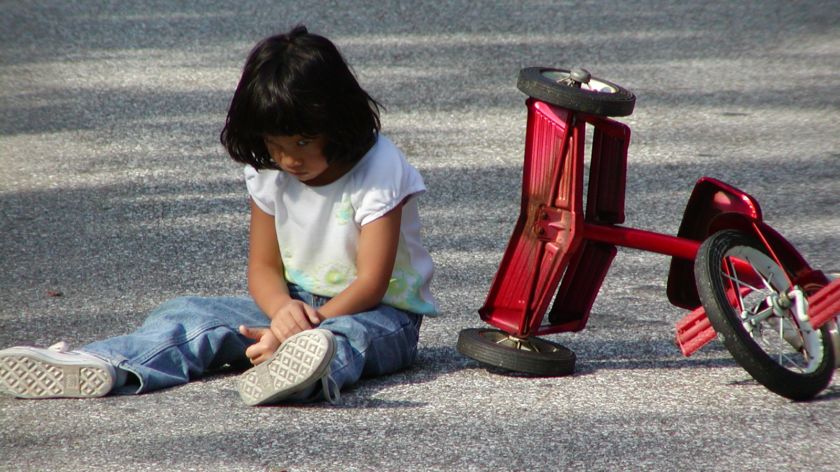A CV full of failures
-
 Foto: Seamoor, Creative Commons
Foto: Seamoor, Creative Commons
Researchers have to rely on grants and publications. Still, there are enough times when they miss the boat by a hair’s breadth. To give a realistic idea of an academic career, the latest trend is to share your failures too. If nothing else, it might cheer up your potentially jealous colleagues.
‘2005: VENI grant. 2009-2011: VIDI grant, Humboldt grand and DFG grant.’ Stefan Maubach’s online CV certainly sounds impressive. Until you realise these are the research grants he didn’t get: you’re looking at Maubach’s ‘failures CV’. Maubach is lecturer in Mathematics at Radboud University. He thinks it’s important to counterbalance the seemingly endless success stories of researchers.
Maubach is not alone. An increasing number of researchers are open about the grants and jobs they didn’t get. Johannes Haushofer, researcher in Psychology at Princeton University, is promoting the trend, inspired by a 2010 Nature article by Melanie Stefan. In this article, the English researcher suggested researchers should be more transparent about their rejections and set-backs. This shows young researchers that celebrated researchers are just normal people.
Pressure
Maubach was immediately inspired. ‘The academic world is such a jungle. Researchers tend to only talk about their successes.’ With his CV he wants to show that an academic career includes lots of set-backs and side-tracks. ‘I just describe what actually happened.’
‘The academic world is such a jungle’
He also shares how things can sometimes go wrong in teaching. ‘I once lectured a group of students on a topic I didn’t know enough about. I thought I could get away with it. It turned out some of the students had taken part in a Mathematics Olympiad. I really made a fool of myself that time.’
Maubach is convinced that being open about your mistakes makes you a happier person. ‘Society puts so much pressure on people to be cool and to perform. It’s hardly surprising so many students have a burn-out. I want to show that making yourself vulnerable is a strength that will serve you much better in the long run.’ Mistakes and setbacks are not a sign of weakness. ‘You have to make mistakes in order to learn.’
He’s also somewhat critical of ‘failure CVs’ by successful established researchers. ‘They’ve got nothing to lose. I think it’s more powerful to show your mistakes as a researcher on a temporary contract.’
Despair
Teun Bousema, malaria researcher at Radboudumc, agrees with this criticism. On his website he also devotes attention to his failures. ‘Failure CVs tend to be kind of effort CVs,’ he explains. ‘Researchers want to show how hard they work. For eight rejected grant applications there are three grants you did get. This means you worked really hard writing all those research proposals. Can you still say that these are failures?’
Bousema finds it especially important to show young researchers that successful researchers are also continuously facing setbacks. ‘For example, one of my articles was recently rejected because the editor found my data meaningless. We’re talking about three years of fieldwork in Africa!’ This kind of merciless review still gets to him. He empathises with the feeling of despair PhD students experience when something like this happens to them. ‘The difference is that now I’m confident enough to conclude that the editor has got the wrong end of the stick.’
‘It’s OK if things go wrong from time to time’
Bousema also wants to emphasise that in science, success and failure are closely related. ‘We once submitted an article on a study I was extremely enthusiastic about to a highly renowned journal. It was rejected a few times, until even the least respected journal in my field was highly critical of it.’ In the end, after much revision, the article was accepted, and it’s still cited on a regular basis.
Bousema tries to show his students and PhD students that failure is part of the game. ‘It’s OK if things go wrong from time to time; I’ve made enough mistakes myself.’ Like the time he gave a guest lecture for an international course on malaria at Harvard University. ‘They’d flown me in for this, even though the topic was far out of my comfort zone. A well-known member of the audience began an aggressive and heated discussion and completely outclassed me. It’s still painful when I think about it.’
Or the time he gave a keynote lecture in Basel when he wasn’t feeling well. ‘I took a painkiller half-an-hour before the lecture. Or so I thought. Turns out it was a sleeping pill!’



